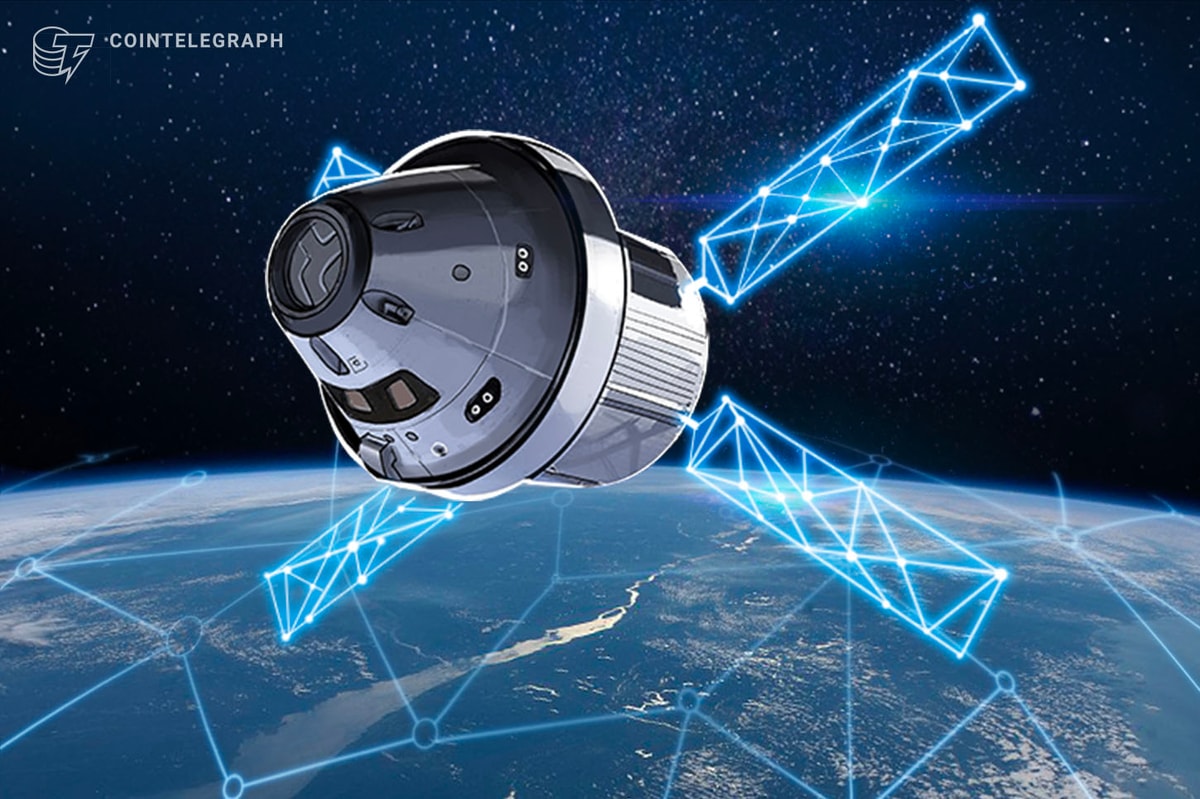Spacecoin XYZ has launched its first-ever satellite into orbit, marking the project’s first step toward bringing a fleet of satellites online that would allow blockchain networks to be secured in outer space.
Speaking to Cointelegraph, Spacecoin XYZ co-founder Daniel Bar said the first officially standardized satellite was the first major milestone in bringing the “Spacecoin layer” online in Earth’s orbit.
The satellite was launched as part of SpaceX Falcon Heavy, which lifted off at 3:34 am local time in California on Dec. 21.
Bar said the Spacecoin satellite will be the first of many future satellites to be launched in the coming months.
He said Spacecoin plans to launch a “constellation” of between seven and ten additional satellites in 2025, which would be enough to bring the Spacecoin mainnet online.
The Spacecoin satellite itself is comprised of two small devices Bar calls “crypto engines” — each roughly the size of a desktop hard drive and another data module roughly the size of a Macbook.
These modules are attached to the satellite’s “bus” — the main part of the satellite infrastructure — and are powered by solar panels when deployed in the earth’s orbit.
An image of Spacecoin XYZ’s first test satellite was sent into space earlier this year. Source: Spacecoin XYZ
Dahlia Malkhi, Spacecoin adviser and professor of computer science at the University of California Santa Barbara told Cointelegraph that Spacecoin’s ambitions range from the DePIN network being an extra-terrestrial backup layer for blockchain networks to a commerce marketplace for “celestial services.”
But as of right now, the primary goal of Spacecoin is to build itself out as a space data center, offering levels of security that aren’t possible here on Earth.
“You can think of it as a trusted hardware platform, which is really leakproof once you deploy it safely and securely. Nobody can tamper with the hardware on a satellite, not even us,” said Malkhi. “We can bring down the satellite and crash it on Earth, but we cannot tamper with the hardware.”
On Nov. 1, Spacecoin XYZ unveiled its Blue Paper, a document that outlined its approach to launching a decentralized physical infrastructure network (DePIN) using a fleet of nanosatellites in space.
According to the project’s Blue Paper, Spacecoin will introduce a novel design built with a layer-1 network deployed in outer space and accompanying layer-2 state chains based on Earth.
Related: Decentralized network Uplink tops 40K routers, targets lower internet costs
The off-world layer-1 is called the “Celestial Chain,” while the terrestrial layer-2 is called the “Uncelestial” network.
Spacecoin XYZ posits a two-tiered design, with the deployed L1 in outer space. Source: Spacecoin
“The Celestial Chain is the outermost authority. In the end, that’s the one that records an immutable history that may outlast our lives here on Earth at some point,” Malkhi said.
AI Eye: 5 incredible use cases for Based Agents and Near’s AI Assistant

Leave a Reply